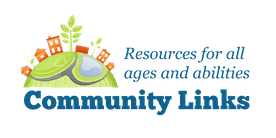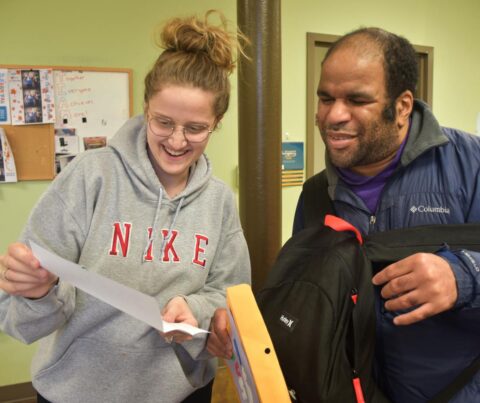
Here, we would like to give a gentle reminder that every day, everyone at every age is learning. With this in mind, that is no different for our loved ones with disabilities as they get older.
Below are some parts of life to think about with continued development. Check out this presentation from The Rehabilitation Research & Training Center for Evidence-Based Practice in Vocational Rehabilitation, which has great material covering the challenges, current solutions, and future recommendations for development. This page has been centered around that information. You can visit our Getting Involved page on how to suggest topics to be added into this section.
More resources for adults are on this page from The Center for Parent Information and Resources. The CPIR gives links to national level organizations and provides materials to help support you based on specific areas.
Finding, Setting, and Achieving Goals
Goal setting and working towards that goal is universal among people of all abilities. Check out the article People with Disabilities: Setting Goals for a Better Life from Benefits.com, which gives examples of what goal setting for people with disabilities may look like. The four focal points listed are only to help guide you. You do not need to limit your priorities, nor your goals, based on these four categories.
You can check out Forbes’ article “13 Questions to Ask Yourself to Identify the Right Goal”. Another option is to begin setting goals by asking open-ended questions. In turn, this helps determine your priorities for making these goals. It also helps you to see which ones are worth pursuing and in which order.
After determining what is important to you, you can then get started on writing these goals. There are methods to guide you with this, with the most popular being to write SMART goals (Specific, Measurable, Achievable, Relevant, Timely). You can read more about SMART goals in this Smartsheet article. You can use the template included on the page the help with organization. Also, check out this article by Rose Reif titled “How to Set Goals for Yourself When You Have a Disability”. Reif is a counselor for adults with acquired disabilities. In the article, she discusses another strategy for setting goals that has been effective for her in her line of work.
For all age groups, it is a shared process of finding out what to prioritize, as well as creating obtainable goals. We have shared resources regarding all of this here. You may apply and personalize them along with any other information and resources in order to better fit your goals and needs.
Links:
Presentation Link- https://mediaspace.wisc.edu/media/Jacob+Leonard-+EducationL185+5.19.2016+1.59.56PM/0_mxrso1dr/45759192
Center for Parent Information and Resources- https://www.parentcenterhub.org/whatiscpir/
Goal Setting- https://benefits.com/social-security-disability/goals-for-people-with-disabilities/
Smartsheet- https://www.smartsheet.com/blog/essential-guide-writing-smart-goals
How to Set Goals- https://rosereif.com/how-to-set-goals-for-yourself-when-you-have-a-disability/





